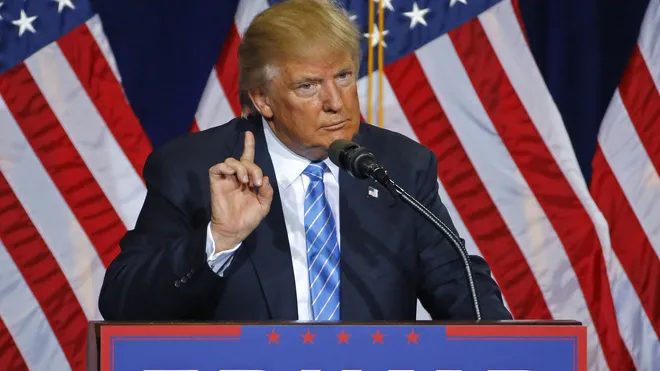New York [US]: In his first broadcast network interview since his re-election, President-elect Donald J. Trump outlined an assertive agenda for his second term, which includes sweeping policy changes and controversial actions related to immigration, criminal justice, and executive leadership.
Among his promises, Trump vowed to pardon hundreds of Capitol rioters, end automatic citizenship for children born to immigrants in the U.S., and push for retribution against political adversaries—specifically, members of Congress who investigated him, according to The New York Times.
Trump, speaking with Kristen Welker on NBC’s Meet the Press, said he would act quickly in his first days in office. When asked about pardoning all involved in the January 6, 2021 Capitol attack, he responded, “Yeah. But I’m going to be acting very quickly,” though he left room for some exceptions, particularly for those involved in violent acts. “There may be some exceptions, those who were radical, crazy,” he added.
Trump further defended the rioters, including those who assaulted law enforcement officers, stating, “Because they had no choice,” and described their prison conditions as “a filthy, disgusting place that shouldn’t even be allowed to be open.”
Controversial Immigration Reforms
Trump also made significant pledges regarding U.S. immigration policy, notably targeting birthright citizenship—a constitutional guarantee under the 14th Amendment that grants citizenship to any child born in the U.S. regardless of their parents’ immigration status. While legal scholars have largely dismissed the idea as unconstitutional, Trump declared, “We’re going to have to get it changed,” and left open the possibility of seeking constitutional amendments or executive actions. “We’ll maybe have to go back to the people. But we have to end it,” he said, although he inaccurately claimed, “We’re the only country that has it,” despite 34 other nations offering unrestricted birthright citizenship.
Trump also indicated his willingness to collaborate with Democrats on the Dreamers—undocumented immigrants brought to the U.S. as children. “We have to do something about the Dreamers because these are people that have been brought here at a very young age,” he said. Despite the DACA program’s introduction under former President Barack Obama, Trump pointed to Democrats for failing to protect Dreamers, though his own attempts to rescind DACA were blocked by the Supreme Court.
Potential Shifts in Federal Agencies and Threats to Political Adversaries
Trump suggested significant changes within key federal agencies, particularly the FBI, and hinted at the possibility of firing FBI Director Christopher A. Wray—whom he appointed in 2017. Citing his grievances over the FBI’s investigation into his handling of classified documents and its response to the assassination attempt on him earlier this year, Trump said, “He invaded my home,” referencing the 2022 FBI search of his Mar-a-Lago estate. He also questioned the FBI’s response to the shooting, saying, “When I was shot in the ear, he said, ‘Oh, maybe it was shrapnel.’ Where’s the shrapnel coming from? Is it coming from heaven?”
While Trump stopped short of confirming Wray’s firing, he suggested it was likely, stating, “It would sort of seem pretty obvious that if Kash [Patel] gets in, he’s going to be taking somebody’s place, right?” Kash Patel, a staunch Trump loyalist, has been suggested as a potential replacement.
Trump also threatened members of Congress who investigated him, including former Representative Liz Cheney, stating, “For what they did, honestly, they should go to jail.” However, he clarified he would not directly instruct the attorney general or FBI director to pursue investigations, though he suggested that they should act independently.
Cheney responded strongly, saying, “Donald Trump’s suggestion that members of Congress who later investigated his illegal and unconstitutional actions should be jailed is a continuation of his assault on the rule of law and the foundations of our republic.”
Reactions and Legal Concerns
As Trump prepares for his second term, concerns about his rhetoric and threats of retribution have intensified. President Joe Biden and his team are reportedly considering issuing blanket pardons for those targeted by Trump, including Cheney. Legal scholars have also raised alarms about the potential for blanket pardons for the Capitol rioters, with some judges expressing dismay. Judge Carl J. Nichols, a Trump appointee, recently commented, “It would be beyond frustrating and disappointing if there were blanket pardons for Jan. 6 defendants or anything close.”
In addition to immigration, Trump has outlined plans for sweeping executive actions on Day 1 of his second term, including reforms to the economy and energy sectors, all while facing fierce legal and political battles over the legality and ethics of his proposed actions.


